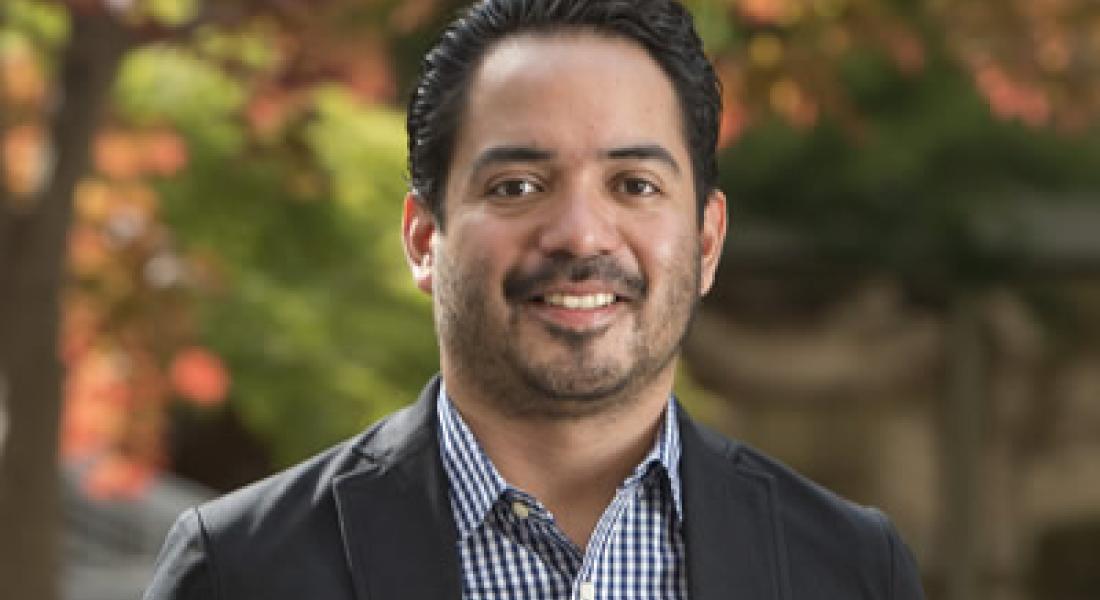
Kellogg Dissertation Year Fellow Rodrigo Castro Cornejo successfully defended his dissertation on June 12 and will formally receive his Notre Dame PhD in political science in August. A former Kellogg PhD Fellow (2010–15) specializing in comparative political behavior, he has been studying the influence of political campaigns on voting behavior in new democracies, particularly in Latin America. In the fall, he will begin a two-year post-doc at the University of Virginia.
In your study of political campaigns and their effects on voting behavior, have you been surprised by any of your findings?
I believe two findings of my dissertation challenge current conventional wisdom in comparative political behavior literature. First, partisanship in Latin America is not as weak as prior studies suggested. With Kellogg support, I was able to conduct survey experiments in Mexico, Argentina, Panamá, and Honduras and found the percent of voters who self-identify with a political party is significantly higher than we thought.
Second, prior comparative studies suggest that partisans in new democracies, particularly in Latin America, tend to be very vulnerable to political campaigns. I find that persuasion is overestimated by prior studies—partisans tend to support their co-partisan candidates and are not as vulnerable to persuasive campaign messages as we thought. As in the U.S., partisans tend to reinforce their prior beliefs during campaigns while rejecting information that is inconsistent with their partisan predispositions.
What attracted you to Notre Dame and the Kellogg Institute?
Notre Dame and the Kellogg Institute have been key academic institutions in the study of transitions to democracy in Latin America. When I was an undergrad in Mexico, I read seminal studies by Kellogg faculty fellows Guillermo O’Donnell, Scott Mainwaring, Timothy Scully, and Michael Coppedge. When I wrote my undergraduate thesis, I read research conducted by Geoff Layman, Debra Javeline, and David Nickerson. I was attracted by the quality of the Department of Political Science and the work done by the Kellogg Institute since its foundation.
I also was aware that renowned Latin Americanists studied at Notre Dame. I met many of them when they returned as visiting fellows or as part of Kellogg’s lecture series: Gabriela Ippólito-O’Donnell, Aníbal Pérez Linán, Rossana Castilgioni, and David Altman, among others.
Kellogg represents an academic home for many Latin Americanists and supports research that is internationally well known. Throughout my PhD program I have [seen firsthand] the extraordinary academic community that the Institute has built over the decades. I had the chance to meet exceptional friends and scholars during my time at Kellogg, [individuals] I know will continue the Kellogg tradition and become great and successful Latin Americanists.
You have been a key organizer of Kellogg’s Public Opinion Working Group and Mexico Working Group. How has this involvement had an impact on your doctoral studies?
Definitely one of my best experiences at Kellogg has been coordinating both working groups. I was able to present my own research at both, and I invited important scholars to speak—key individuals for students who specialize in comparative political behavior.
Liz Zechmeister, director of LAPOP, the most important public opinion project on Latin America, presented her research on ideology in Latin America; former Visiting Fellow Taylor Boas presented a paper on religion and politics in Latin America; Ulises Beltrán presented his book project on public opinion during Mexico’s democratization; Joy Langston presented a chapter of her book on the Mexican PRI; and Allyson Benton presented a study on electoral manipulation in Mexico’s subnational authoritarian enclaves.
How did co-authoring papers with Kellogg Faculty Fellow Debra Javeline and former Faculty Fellow David Nickerson affect your formation as a scholar?
Debra Javeline, my first-year advisor, invited me to be the research assistant for a project at the intersection of political science and climate change. I analyzed an elite survey of environmental biologists about climate change. Later on she invited me to co-author two papers—and we still have one more in progress—based on that survey data.
It has been a great experience, and I have learned a lot working with her. She is incredibly organized, generous, and passionate about her work. The project has not only been important to me from an academic perspective, but also on a personal level because it involves a topic about which I care deeply. When I began this work, climate change was not the important public issue it is these days; candidates, parties, and the media did not pay much attention to the consequences of climate change. Fortunately, things have changed since then.
The collaborative paper with David Nickerson began as a class project and included fellow Kellogg doctoral affiliates Nara Pavão, Laura Gamboa, and Sandra Botero. Since then, we have conducted survey experiments in Colombia, Argentina, El Salvador, and Mexico, analyzing why voters in new democracies support corrupt politicians.
Prior studies suggested that voters support corrupt candidates because they lack information about candidates’ misdeeds. Our studies suggest that this is not always the case. Sometimes voters do not perceive the accusations of corruption as credible, or sometimes voters condone corruption because they perceive potential personal benefits.
David has been a mentor for us in every phase of the research process—teaching us about conducting survey experiments, analyzing the results, working together on the paper, etc. That experience has been invaluable for my formation as a scholar.
The Kellogg Institute for International Studies, part of the University of Notre Dame’s new Keough School of Global Affairs, is an interdisciplinary community of scholars and students from across the University and around the world that promotes research, provides educational opportunities, and builds linkages related to two topics critical to our world—democracy and human development.





